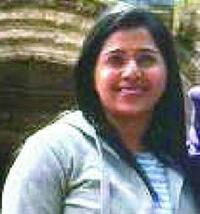
Niranjana Kumaresan, a 33-year-old woman hailing from Chennai, filed a complaint with UK's National Health Service (NHS) alleging that doctors and staff at Barnet and Chase Farm hospital in north London ignored her plea for help even after she repeatedly told them she had stopped feeling the baby's movement and doctors themselves confirmed the baby's heart beats were not detected.
"I first felt the baby had become still on September 18, three days after my due date. The previous day I felt my water had broken and reported to the hospital with intense pain. The midwife examined the baby's heart and felt its head position before sending me back home," Niranjana said over phone from their house in Middlesex.
Doctors say considering Niranjana's fetus was in oblique position and she underwent a caesarean for her first child, the delay risked not just the baby's life, but the mother's as well. "When a patient with history of C-section with oblique transverse lie comes with pain, show and leak, an emergency C-section should be done to save the baby and the mother," said noted obstetrician-gynaecologist Dr Kamala Selvaraj.
When Niranjana reported she couldn't feel the baby's movement, doctors allegedly tried to allay her fears saying it was because of the fever she had overnight. "She was advised to take a paracetamol without any examination," said Niranjana's husband Karthikeyan Kumaresan, a software engineer.
Twelve hours later the couple called for the antenatal team which found traces of blood in her urine. "We were moved to a ward, but Niranjana wasn't examined until three hours later," said Karthikeyan, who along with Niranjana moved to the UK from Chennai six years ago.
The midwife who came to examine Niranjana couldn't detect the baby's heart beat with the hospital's mobile scan and the couple were asked to return the next morning. "We were so hassled and upset by then. They so casually asked us to return the next day even after realising the baby's heart beat was missing. They tried downplaying our fear stating that the scan had probably stopped working which is why it failed to pick up the heart beat," said Niranjana, who has a 6-year-old daughter.
On September 19, by which time Niranjana was overdue by four days, she was moved to the delivery room. "I was in a lot of pain by then. But even then, the staff kept saying I wasn't ready as yet. When I went to the washroom the next day to relieve myself, I saw the baby's head. I quickly alerted my husband, who in turn rushed in the staff," said Niranjana. The stillborn baby was delivered.
According to Karthikeyan, the baby's head was squashed and broken. "When I asked the staff, I was told that the head usually becomes like that when babies die in the womb," he said. Struggling to come to terms with her baby's death, Niranjana realised her ordeal was far from over. "After my delivery when my husband was in the room I wanted to go to the toilet and called for help. The midwife told me I had to help myself. I was bleeding. When I came back from the toilet I found the midwife had gone. I couldn't return to the bed, barely managing to stand on my own and I had blood around me," she said.
The couple to their shock also discovered later that the baby's post-mortem was done four days after it was delivered. "When I inquired I was told that the delay was because the body can only be moved by an undertaker and they couldn't arrange for one immediately," said Karthikeyan. On September 24, the couple approached the metropolitan police and lodged a complaint and simultaneously filed a complaint with the NHS.
While the hospital administration wasn't available for comment, NHS acknowledged they had received the complaint. "We are looking into the complaint," said Alex Greenwood who is the facilitator between the couple and the national body. "Senior members of the staff will be involved in investigating the complaint," said Alex, who is part of patient advice and liaison service, a NHS body created to provide advise and support to NHS patients.
In December last year, a woman of Indian origin has died after doctors in Ireland refused to perform an abortion, telling her that "this is a Catholic country", sparking widespread outrage.
For Niranjana, it will take sometime before she musters the courage to step into a hospital again. "The story of my pregnancy has been marred with horror episodes of lack of proper care. My trust on midwives is completely shaken and I have doubts on the level of skills possessed to handle situations that are not quite the usual and need intervention. I may never bring myself to step into the hospital again," Niranjana said in her complaint.






Comments
Add new comment